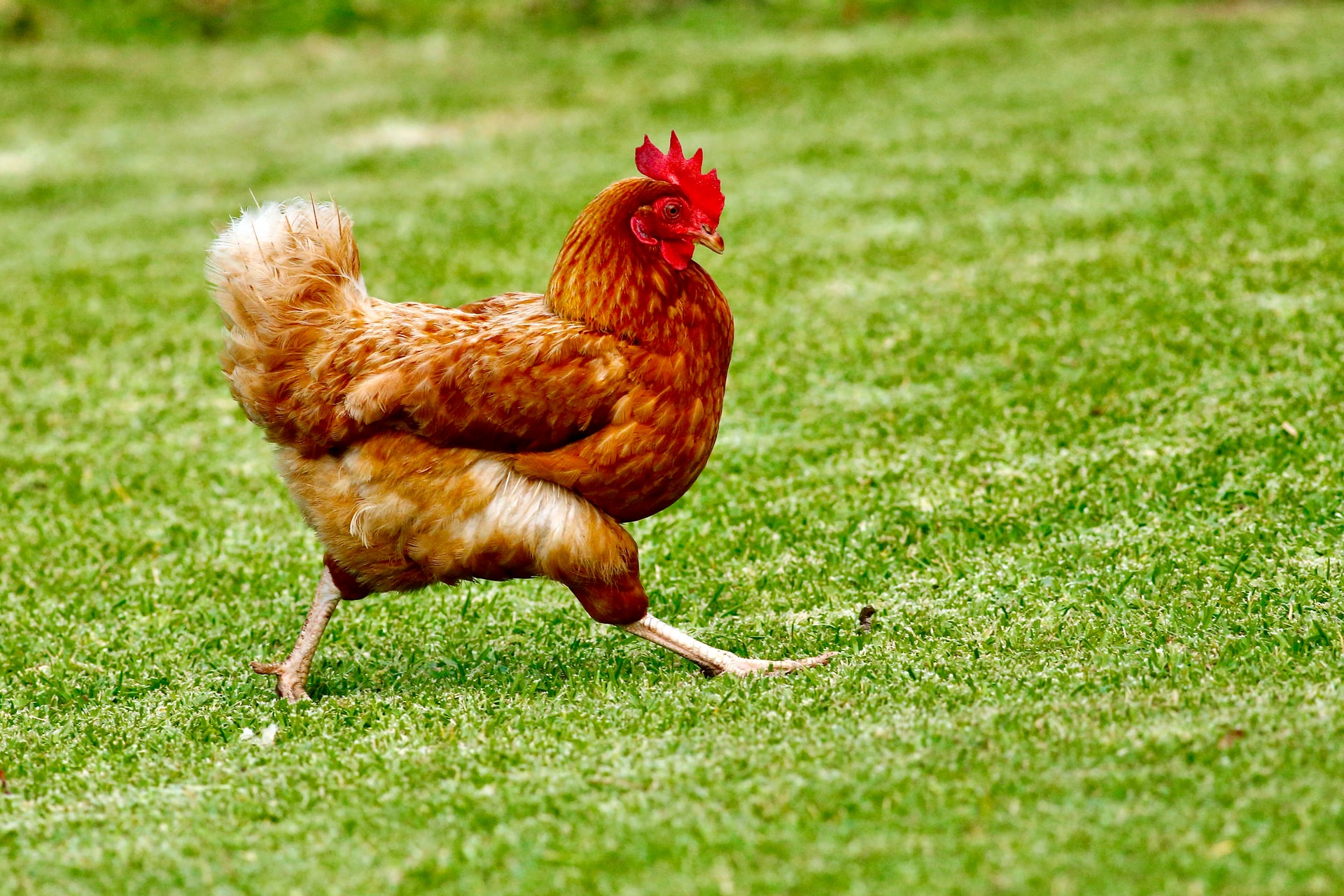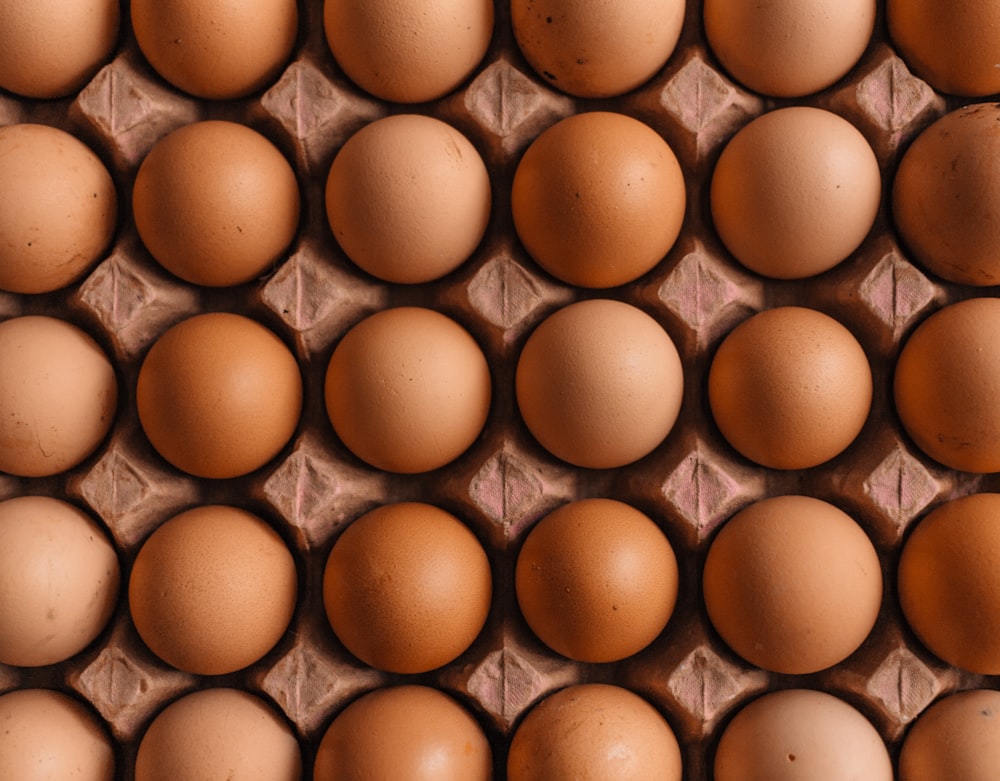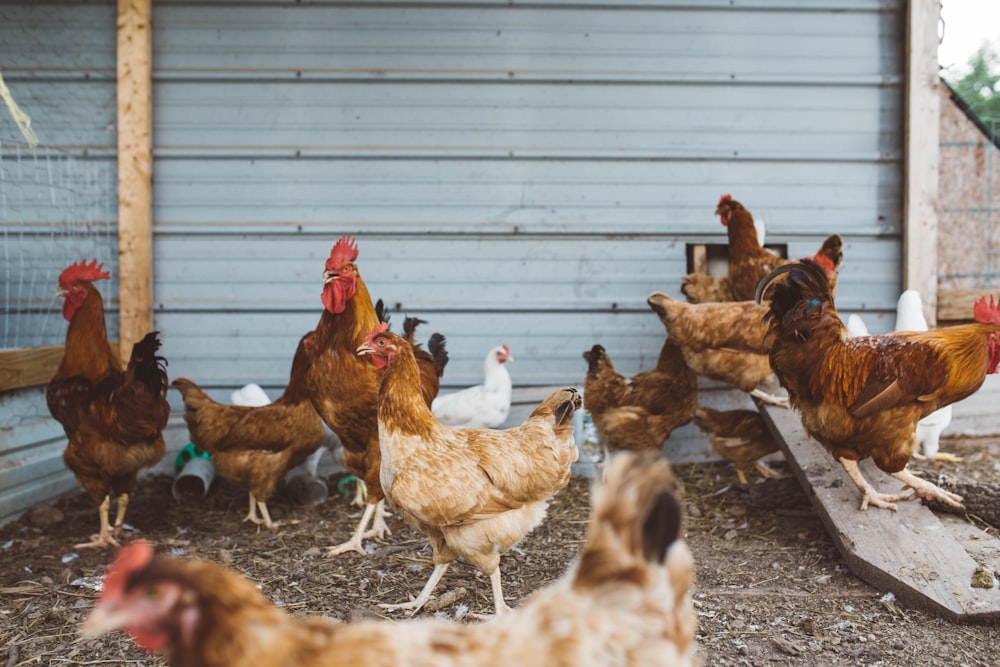Chicken Not-So-Little: What is Chicken’s Impact on the Planet?

With the sheer amount of chicken meals we eat on the daily, some might call it the defining food of our lifetimes. But according to experts, this judgment isn’t that far from the truth.
We live in the Anthropocene, or era of human influence, where our actions as a society have a significant impact on the earth. As paintings on cave walls have shown, the desire to be remembered and to “make your mark” on the world is an integral part of the human experience. Though the evidence we leave behind may not be what we expect, as experts from the Royal Society Open Science Journal predict that chicken bones, rather than infrastructure, art, or music, will be the most important leftovers of what they call “a human reconfigured biosphere”.
Chicken: The Eternal Meat Source
Much to Foghorn Leghorn’s dismay, the chicken’s rise to the top of the fast-food chain hasn’t been due to its intelligence or good ol’ charm. Domesticated chickens have become synonymous with the growth of human civilization simply because we can’t stop eating them. In 2019, the worldwide chicken population tallied up to 25.9 billion, outnumbering us humans almost four times over. To fuel our insatiable hunger for the bird, it is estimated that 50 billion chickens are slaughtered for food each year. And with the abundance of chicken meals come chicken bones—which tend to fossilize rather than degrade in our landfills. Having evolved a unique and unmistakable skeletal form due to centuries of human involvement through domestication and breeding, these chicken bones will likely serve as an iconic reminder of the time humans ruled the earth.

The Skinny on Our Meat Consumption
While these are good tidings for companies like Chick-Fil-A and KFC, who thrive off of our chicken addiction, the thought that chicken bones may be all we leave behind after centuries of innovation raises ethical questions about our consumption and our impact on the planet.
Eco-conscious carnivores have been singing the meat’s praises since the 1960s, hailing it as a better alternative to beef and pork. And this is true, chicken is more sustainable than most other meat sources. A chicken meal emits way less CO2 than the beefy alternative, and cow farms are known for polluting the atmosphere with methane gas. Chickens also use up less land and water than cows do, leaving more room and resources on farms to grow food for hungry people.
And since chicken consumption has increased almost four times since the 60s while beef has been on a steady decline, it seems that this news hasn’t fallen on deaf ears. But as global temperatures continue to rise, even with more planet-friendly meat choices, scientists predict that an even bigger shift in diet must be made in order to stave off the effects of global warming. Eating more chicken and less beef might not be enough, they warn. Even with the way that beef production has halted in the past few decades, the production of chicken has skyrocketed—and, while better than beef, chicken is not a guilt-free meat.

Due to industrialization, a large portion of the chicken we eat comes from factory farms. Outside of being cramped and disease-ridden torture for the chickens, these farms grossly underpay and put workers at great risk, especially during slaughter and processing. These farms aren’t great for the planet either. Growing demands means more chickens to feed and more waste to dispose of. This waste is oftentimes so plentiful that, even when used as fertilizer, it ends up leaking into nearby waterways—choking the oxygen out of water life and causing a big stink for the people living downwind.
Where Plant-Based Diets Fit in the Food Pyramid
Though better for the environment than a diet of beef, a diet of chicken—as we’ve come to learn—won’t bring about the climate utopia we all dream of. Chicken farms still pollute the earth and deplete resources, and despite our greatest efforts, scientists believe that replacing beef and pork with chicken won’t be enough to stop the earth from warming.
Trends in meat consumption show that, surprisingly, it isn’t the countries that lack industry and technology but those with more resources putting the most stress on the planet when it comes to food. Even with lower birth rates and mouths to feed than our less prosperous counterparts, countries with higher income rates like the US and Canada consume almost 10 times more meat. This makes sense. As money becomes more readily available, luxuries like meat and dairy become more accessible and demand rises. With this demand comes industrialization and factory farming—which on one hand makes meat more accessible, but on the other; leads to devastating environmental consequences.

And replacing beef with chicken, scientists say, isn’t the perfect fix. Switching to a plant-based diet, or even just attempting to eat less meat, is. Plant-based protein sources put less stress on the planet, with a serving of chicken producing 11 times more CO2 than a serving of beans. Just swapping out one chicken dinner for a buddha bowl rich with carrots, for example, could reduce your carbon footprint almost 20 times over! And while eating less of our beloved chicken sandwiches and steak dinners might sound dreadful, the need to do so has never been greater.


I have read so many posts about the blogger lovers however this post is really a good piece of writing, keep it up
whoah this blog is wonderful i really like reading your articles. Keep up the great paintings! You realize, a lot of people are hunting round for this info, you could help them greatly.
I have read so many posts about the blogger lovers however this post is really a good piece of writing, keep it up
Great selection of modern and classic books waiting to be discovered. All free and available in most ereader formats. download free books
Great selection of modern and classic books waiting to be discovered. All free and available in most ereader formats. download free books
whoah this blog is wonderful i really like reading your articles. Keep up the great paintings! You realize, a lot of people are hunting round for this info, you could help them greatly.
https://www.philadelphia.edu.jo/library/directors-message-library
Excellent Blog! I would like to thank for the efforts you have made in writing this post. I am hoping the same best work from you in the future as well. I wanted to thank you for this websites! Thanks for sharing. Great websites!
I see some amazingly important and kept up to length of your strength searching for in your on the site